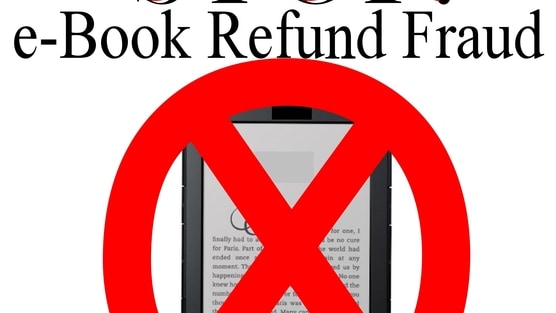If You Cannot Prove That Piracy is Hurting You, Why Bother Fighting It?


I’m glad that I waited for evidence because it looks like there isn’t any. Today I learned that piracy isn’t nearly as harmful to the entertainment industries as some claim.
Mike Masnick has just posted a new research report titled, The Sky Is Rising. It’s a follow up to the one he cowrote 3 years ago, and it elaborates on the true state of the entertainment industries.
For years, we’ve been hearing doom and gloom reports about how the industry is dying, how customers just want stuff for free, about analog dollars turning into digital dimes… and (all too frequently) about how new laws are needed to save these industries.
Yet, what we find when looking through the research — from a variety of sources to corroborate and back up any research we found — is that the overall entertainment ecosystem is in a real renaissance period. The sky truly is rising, not falling: the industry is growing both in terms of revenue and content.
If anyone wants to claim that piracy has a negative effect then at this point you’d pretty much have to argue that the industry would grow even faster without it. (I look forward to someone trying.) Of course, I made pretty much the same point back when Wiley decided to sue ebook pirates, and it’s still true today.
Yes, piracy does happen, but it exists due to the same technologies that also created new business opportunities. Do you know why some part of the entertainment industries are growing? It’s because of the new opportunities. They’ve found new ways to sell content to customers.
But what about those companies whose revenues are shrinking, not growing, you ask? My counter is simple. How do you know that piracy is the cause, and not poor business decisions? And even if you can show an increase in piracy for a given corporation, how do you know that those poor business decisions weren’t the cause of the piracy?
I’ve always held that the first cause of piracy is the frustrated customer. For example, people wanted Harry Potter ebooks, so they went and got them. Feel free to hate them for that, but a good portion of those pirates would have bought the ebooks had they been available. That is a poor business decision, not a consequence of evil pirates.
Do you know the great part about this report? It weakens the claim that piracy is harmful, and that undermines the entire concept of it being evil. In fact, piracy is now no more evil than the used book market, libraries, or people browsing without buying in bookstore. For the longest time I have had the feeling that this was the case, so I am pleased to finally have proof.
P.S. Just because piracy isn’t harmful doesn’t mean that you should stop trying to make a profit. Those pirates aren’t evil but they are still potential customers. Figure out a proactive way to turn them from pirate to customer and your business will grow.
via Techdirt
image by ShardsOfBlue

Comments
Mike Cane January 30, 2012 um 11:49 am
See this too:
How Copyright Industries Con Congress
http://www.cato-at-liberty.org/how-copyright-industries-con-congress/
cookie January 30, 2012 um 11:51 am
"If You Cannot Prove That Piracy is Hurting You, Why Bother Fighting It?"
If someone steals your patent or design and uses it in their own product, should we simply ignore it on the basis that the company who owns the patent is still seeing sales growth?
If Rolex or Gucci is still profitable and growing sales, should we allow people on a street corner in the garment district to sell exact knockoffs of their product?
Nate Hoffelder January 30, 2012 um 12:08 pm
That approach doesn’t seem to have harmed the fashion industry.
And please don’t confuse piracy with counterfeiting.
Knockoffs have been shown to be aspirational products. Customers want the good stuff but cannot afford it. Thus when they buy knockoff they re not a lost sale. Also, people tend to replace knockoffs with the raal thing once they can afford it.
charlie dulin January 30, 2012 um 1:29 pm
so what if the customer is "frustrated"? that doesnt make it right to pirate the work. If its not available to you or costs too much THEN WAIT and read something else that is available to you at the price you can afford.
Counterfeiting and piracy devalue the brand. That person may not have purchased a Gucci hand bag but when you have counterfeits posing as the real thing for much less then that leads to devaluation of the real item. Their friend see the bag and say "oh how much did it cost" then compares it to a real gucci and thinks its over priced. they also look for the cheap knockoff/copy.
Ravi January 30, 2012 um 2:40 pm
Because it isn’t about the money and never has been. Talking about the money that is allegedly "lost" to piracy is just a way to convince people to give them what they really want: control.
charlie dulin January 30, 2012 um 3:33 pm
um yeah they want to control the selling/distribution of things THEY CREATED.
Nate Hoffelder January 30, 2012 um 3:37 pm
Actually, the control issue is coming from the middlemen, not the creators.
Ravi January 31, 2012 um 7:19 am
If only we were talking about controls on sales and distribution, but that’s not the kind of control we’re talking about. In just the case of video, we’re talking about trying to impose controls on:
– when you can watch something (e.g. DVRs that limit or ban time-shifting)
– where you can watch (e.g. DVD region codes)
– what device you can watch something on (e.g. device-specific DRM schemes like Apple’s FairPlay)
– whether or not you can back it up (e.g. see the Kaleidescape case)
– what parts of it you watch (e.g. the lawsuits against ClearPlay and CleanFlicks)
– whether or not you can create excerpts for reviews, commentary or educational purposes (e.g. the impact of the DMCA and Blu-Ray encryption and the DMCA on tools for fair use)
and so on.
J.D. Hughes January 31, 2012 um 4:19 am
It’s been said before, but I will say it again: the example is the music industry, which for years spent many millions defending the indefensible without any success.
Piracy is here to stay. No amount of DRM will alter that. No amount of legislation will alter that.
Morally, ethically, piracy is theft but little Jimmy surfing the net for a book, a film or a song doesn’t give a stuff about that. Neither do the offshore companies who provide pirate services.
So, unless we want the mess in the music industry, writers and publishers have to understand that the old rules no longer apply.
But I fear that the failed music industry model is the one to which we are heading as the old guard scramble to leap off the cliff.
The solution is to price ebooks at an affordable price. Print books will have to be cut to the bone to survive. There will be blood.
Surprisingly, many readers still have morals and ethics and are willing to pay a reasonable price for a good read, but not the ludicrous prices of yesterday, mostly sucked up by the publisher. I have three free short stories on Amazon, Smashwords etc., and my new novel will be priced at or below 3.99. Good value for 130,000 words, even if I say that myself. 🙂
It’s a New World Order, and everyone can win if we get rid of the greed and stupidity. Not likely, but it’s worth a go.
Stumbling Over Chaos :: In which linkity happens yet again February 3, 2012 um 8:51 am
[…] Some thoughts on piracy from the Digital Reader. […]
Robert Nagle September 25, 2015 um 1:15 am
Here are my 5 insights into the matter.
1)The importance/harm of piracy differs depending on what genre you’re talking about. Each genre has unique characteristic and different production methods. If music piracy isn’t harmful, that doesn’t mean that ebook piracy isn’t harmful either.
2)Piracy hurts big budget projects the most (if you include special effects, talent, marketing, etc). Piracy is inevitable for projects with huge marketing campaigns and high initial prices. See point 4.
3)As with any legal matter, enforcing copyright can be expensive — especially for indie types. There tends to be little payoff for aggressive enforcement.
4. Piracy is a result of a failed pricing model. It is the result of a mismatch between demand and pricing (and ability to pay). Many teens don’t have access to credit cards; hence they pirate. Most teens (and yes many adults!) can’t afford to pay $1 per song on itunes. They don’t realize that the reason for this high pricing is that big labels make big budget projects to make the teen aware of this big artist. A sophisticated listener (or reader!) learns how to find great or low cost stuff for free, obviating the need for piracy.Or they learn about cheaper ways to buy digital stuff (i.e., buy from emusic rather than itunes). In a way, piracy is an impulse of people before they become sophisticated consumers.
5. Artistic works are funny in that the consumer tend to value certain ones much more AFTER consumption than BEFORE consumption. This applies to future works by an artist as well. It also implies that an artist should be open to tipjars and stuff like that.
Here are some more of my thoughts about pricing vs. piracy from a decade ago! http://www.imaginaryplanet.net/weblogs/idiotprogrammer/2006/01/thoughts-on-ebook-pricing-part-two/